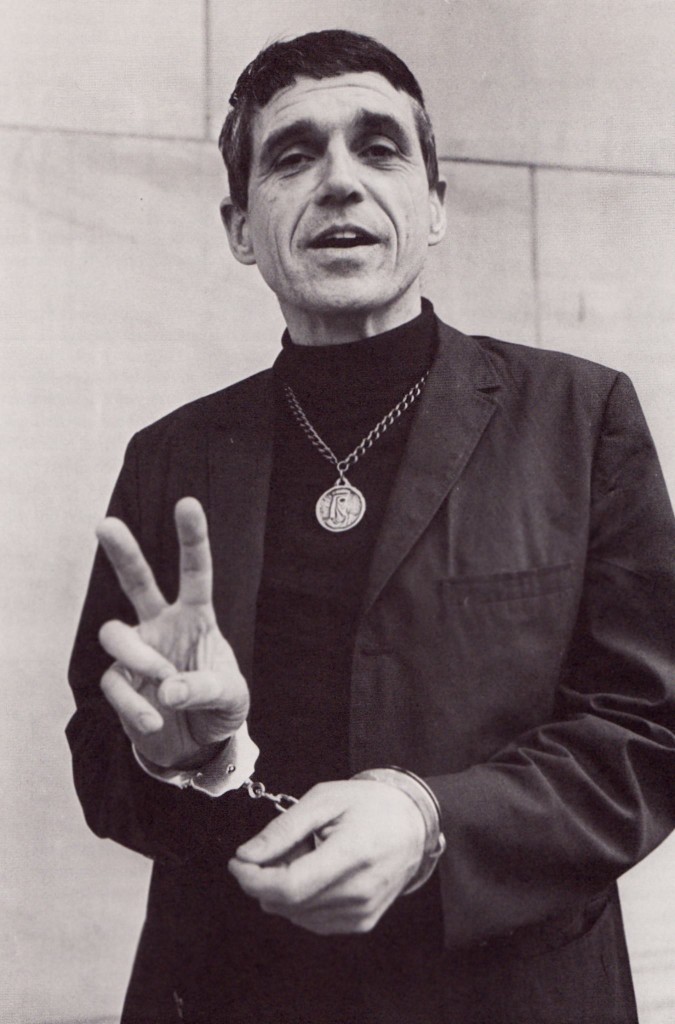The Rev. James Martin remembers Daniel Berrigan:
The great Daniel Berrigan, SJ, the Jesuit priest, activist, poet and peacemaker, died today at the Jesuit infirmary at Fordham University in the Bronx. Dan was one of the great Catholics of our time, a champion of social justice and a tireless promoter of peace. His influence on the peace movement, particularly during the Vietnam era, cannot be overstated; but his aim was not simply peace in Indochina, but peace everywhere. A friend of everyone from Thomas Merton to Dorothy Day to Martin Sheen, and an inspiration to generations of peacemakers, Dan was also willing to be jailed for his beliefs, which were often unpopular in church circles, and sometimes even among his brother Jesuits. (Though Pedro Arrupe, SJ, then superior general of the Society of Jesus, made a point to visit Dan when he was imprisoned in Danbury Prison in the 1970s.) I greatly admired his particular brand of spiritual courage.
Here is an interview with Dan from 2009, in which he looks back on his long life with gratitude:
An overview of his life from the “Jesuits East” magazine:
And his “Ten Commandments“:
The New York Times writes:
The United States was tearing itself apart over civil rights and the war in Southeast Asia when Father Berrigan emerged in the 1960s as an intellectual star of the Roman Catholic “new left,” articulating a view that racism and poverty, militarism and capitalist greed were interconnected pieces of the same big problem: an unjust society.
It was an essentially religious position, based on a stringent reading of the Scriptures that some called pure and others radical. But it would have explosive political consequences as Father Berrigan; his brother Philip, a Josephite priest; and their allies took their case to the streets with rising disregard for the law or their personal fortunes.
A defining point was the burning of Selective Service draft records in Catonsville, Md., and the subsequent trial of the so-called Catonsville Nine, a sequence of events that inspired an escalation of protests across the country; there were marches, sit-ins, the public burning of draft cards and other acts of civil disobedience.

